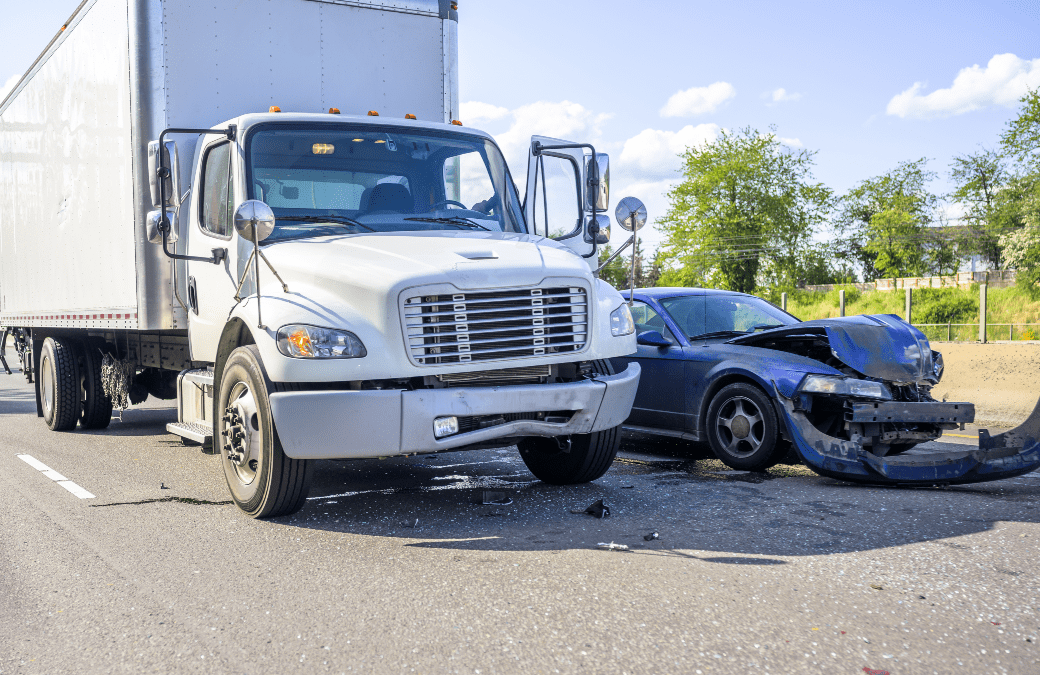Setareh Law
March 24, 2021
Most people know how a car accident claims process goes. The injured party files a claim against the other to seek financial compensation for their losses. In some cases, they’ll need an attorney to represent them. However, many people make the mistake of thinking that a truck accident claim will go the same way.
Unfortunately, these claims are more challenging, which is why you should be aware of the top five ways truck crashes differ from car crashes. If you were involved in one, consider contacting a California truck accident attorney to guide you through the claims process.
Truck Accidents Are More Severe
Most 18-wheel trucks weigh up to 80,000 pounds. Conversely, the average car weighs just over 4,000 pounds. The truck’s weight and size aren’t the only factors that contribute to an accident; drivers also have larger blind spots, longer stopping distances, and wider turn radiuses. All of these factors can cause a truck accident to be life-threatening. Remember that some trucks also carry potentially hazardous cargo, such as flammable chemicals, making accidents even more dangerous.
Truck Accidents Involve Multiple Parties
In car accidents, the injured party will file a claim against the other driver. This will typically include their insurance company, but the accident victim is only dealing with one party. However, with truck accidents, there may be several parties liable for the accident. You might be able to file a claim against the truck driver, company, or manufacturer. The accident may have been caused by cargo hitting your vehicle. If this is the case, the company that loaded the truck could be responsible.
Trucking companies have large legal teams at their disposal, with highly trained and aggressive lawyers representing them. Large companies want to avoid paying out large settlements, and their attorneys will employ sneaky tactics to reduce your claim. This is why it’s essential to speak with a personal injury attorney before speaking to an insurance company or other lawyer.
Commercial Truck Accidents Require More Evidence
Evidence is an integral part of any accident claim, but track crashes typically require more proof than car collisions do. Evidence such as photographs, police reports, and witness statements will be crucial to your case. However, truck accidents involve more information, such as driver’s logs and employment records, that may help a claim.
Most commercial vehicles also have a black box, which some companies refer to as an electronic control module. It records how fast the driver was going, when they applied brakes, and how many times that vehicle was in an accident.
Drowsy Driving Is a Common Factor in Truck Accidents
Truckers can only operate their vehicles for so many hours a day or week. In California, they must follow the 80 hour/8 day rule. This means that they cannot drive for more than 80 hours in eight consecutive days. They also cannot drive for more than 12 hours a day. Additionally, truckers must rest at least 10 hours before a new work period or 32 hours if they plan to drive for another eight straight days.
However, many trucking companies are more concerned about profits instead of their drivers’ safety. Long-haul truckers may break the rules to complete a trip on-time. According to the Federal Motor Carrier Safety Administration, fatigue is among the top ten causes of truck accidents.
Trucks Are Susceptible to Different Crashes than Vehicles
When you’re in an accident with another vehicle, it will likely be a head-on, rear-end, or sideswipe crash. These accidents can happen with a truck, but they can cause more dangerous accidents because of their size.
- Jack-knife accidents occur when the trucker brakes suddenly, but the trailer does not stop because of forward momentum. This causes the trailer to swing to the side and create a V shape.
- Underride accidents occur when a smaller vehicle, such as a car, crashes into the back of the truck and continues to slide under it. Similarly, override accidents happen when a truck slides over the vehicle in front.
- Cargo that breaks away from the truck and hits another vehicle is known as an overloaded cargo accident.
Speak to a California Truck Accident Attorney Today
If you or a loved one was in a trucking accident in California, reach out to Setareh Law. We take pride in working closely with our clients to understand the accident and their injuries better. Our team of experienced legal professionals will work closely with you to build a winning defense strategy.
The attorneys at Setareh Law will work for you to receive maximum compensation for your losses. Call (310) 659-1826 or complete our contact form to schedule a free consultation today.


